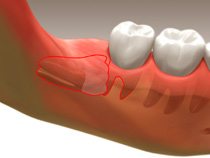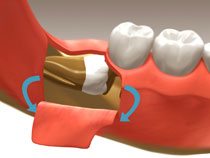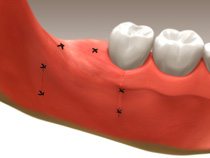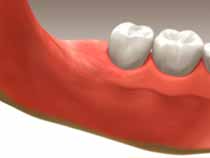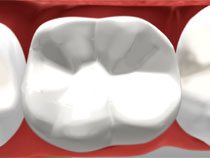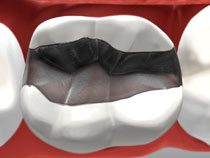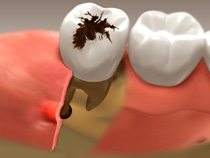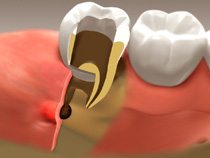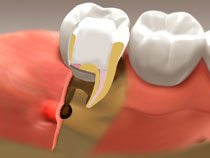General dentistry refers to the practice of diagnosing, preventing, and treating conditions involving the teeth, gums, and jaw. Ideally, general dentistry is a preventive medicine. Our passion is to work together to educate our patients and aid in the prevention of tooth decay and periodontal disease before they even start. The Canadian Dental Association recommends that patients visit a dentist twice a year in order to maintain optimal oral hygiene and keep serious dental problems at bay. To schedule your routine dental care, contact us today!
Apart from getting your regular checkups, dentists are also able to perform the following procedures:
Dental Exams
A comprehensive dental exam will be performed by your dentist at your initial dental visit. At regular check-up exams, your dentist and hygienist will include the following:
- Examination of diagnostic x-rays (radiographs): Essential for detection of decay, tumors, cysts, and bone loss. X-rays also help determine tooth and root positions.
- Oral cancer screening: Check the face, neck, lips, tongue, throat, tissues, and gums for any signs of oral cancer.
- Gum disease evaluation: Check the gums and bone around the teeth for any signs of periodontal disease.
- Examination of tooth decay: All tooth surfaces will be checked for decay with special dental instruments.
- Examination of existing restorations: Check current fillings, crowns, etc.
Dental X-Rays
Dental radiographs (x-rays) are essential as preventative and diagnostic tools to provide valuable information to the dentist that are not visible during a regular dental exam. Dentists and dental hygienists use this information to safely and accurately detect hidden dental decay, dental abnormalities, and complete our accurate treatment plan. Without getting routine x-rays, problem areas may go undetected.
Dental x-rays may reveal:
- Abscesses or cysts
- Bone loss
- Cancerous and non-cancerous tumours
- Decay between the teeth
- Developmental abnormalities
- Poor tooth and root positions
- Problems inside a tooth or below the gum line
Are dental x-rays safe?
We are all exposed to natural radiation in our environment. The amount of radiation exposure from a full mouth series of x-rays is equal to the amount a person receives in a single day from natural sources. Although dental x-rays are considered safe, we still take the necessary precautions to limit the patient’s exposure to radiation when taking dental x-rays. These precautions include using a lead apron shield to protect the body and using the latest technology and fast film that cuts down the exposure time of each x-ray.
How often should dental x-rays be taken?
The need for dental x-rays depends on each patient’s individual dental health needs. Typically a full mouth series of dental x-rays is recommended for new patients. A full series is usually good for three to five years. Bite-wing x-rays (x-rays of top and bottom teeth biting together) are taken at regular check-up visits and are recommended once or twice a year to detect new dental problems.
Extractions:
At McKenzie Lake Dental we can do non-impacted removal of wisdom teeth. Although some people do not have all their wisdom teeth, we do usually recommend extraction after a certain age to prevent large cavities and infection developing in the future. Apart from wisdom teeth, in only the most extreme and necessary cases—such as when a tooth is decayed or damaged beyond repair—we may extract a tooth in preparation for a restorative dentistry procedure, such as dentures, bridges or implants.
Fillings:
While undergoing your regular dental checkup the dentist may note areas where decay has affected the tooth structure and a cavity has formed. At McKenzie Lake Dental we use composite resin to fill the affected area. This type of filling can be matched to the same color as your other teeth creating a natural appearance rather than the outdated silver amalgam fillings.
Night Guards:
Night guards are custom made plastic trays that are used to prevent excessive wear on the teeth caused by grinding during sleep. Bruxism, as the medical condition is called, can lead to problems in the jaw and wear down the teeth. When chewing muscles get tired from clenching and grinding they can go into spasm and cause pain. McKenzie Lake dental provides night grinding appliances as a preventative method for this condition.
Non-Surgical Gum Therapy:
After a thorough periodontal screening and examination we may choose more aggressive therapies aimed at eliminating or reducing the amounts of bacterial poisons and plaque accumulating below the gum line, (generally cleaning and polishing of teeth is above the gum-line). This involves curettage and root-planing and/or treatment with site specific administration of medications to the affected gums. Curettage is the debridement of the soft tissue lining around the tooth. In gum disease, this tissue is chronically irritated by bacteria deep below the visible gum-line and needs to be removed so that proper healing can occur. Root-planing is the removal and smoothing of micro-amounts of root surface so that a clean and uninfected surface is presented to the healing lining of soft tissue.
These two procedures are generally done simultaneously and may require local anesthesia. The services of a specialist (Periodontist) may be recommended should surgical intervention be required. Often surgery allows for complete healing of the gum and bone, reduced mobility of teeth and a greatly improved prognosis.
Root Canal Therapy:
Each of our teeth contains a long, thin strand of dental pulp—which provides the tooth with nutrients and nerves—that extends down to the tooth’s root. If the pulp becomes infected or injured, the tooth’s nerves die and, without endodontic treatment, the tooth dies as well. Root canals are designed to save such damaged teeth.
During the procedure, a gap is drilled into the tooth’s crown and pulp chamber, diseased pulp is re-shaped or removed, and the tooth is permanently sealed with a tooth-colored inlay/onlay or crown.
Sedation:
To relieve the anxiety some have associated with dental visits, we offer oral conscious sedation, also known as sedation dentistry. Patients who feel stress about having dental work done, as well as those who need extensive procedures performed in one visit, can benefit from conscious sedation.
The procedure involves taking an oral sedative prior to your dental treatment. Within an hour, this sedative will take effect making you very sleepy. Your vital signs and comfort level are closely monitored throughout your visit.
Sports Guard:
A sports guard is highly recommended by coaches and dentists for adult and child athletes who want to protect their teeth during their games. Without proper protection, your teeth are at high risk from being damaged by a ball or an accidental hit in the mouth. A sports guard is made by taking custom moulds of your teeth to create a thermo plastic resin for a custom fit mouth guard. This mouth guard will fit perfectly to your teeth, and stay in your mouth during your games to help absorb the shock of any hit to the mouth.
TMJ (TMD) Therapy:
Many suffer from Tempromandibular Joint pain or Tempromandibular Dysfunction. Symptoms include:
- Pain when opening jaw
- Inability to open mouth wide or move from side to side comfortably
- Neck and shoulder pain
- Ear pain, hearing loss
- Ringing in the ears
- Clenching, night grinding
- Chronic fatigue
- Noise, grating or popping in joint
- Chronic Temporal or occipital headache
Treatment of these problems can be complicated. The cause can often be multi-factorial. Successful treatment may involve other treatment such as, Physiotherapy, Chiropractors, Massage Therapy, Cranio-mandibular specialists, and Physicians.
Meaningful treatment begins with proper diagnosis. We will do a thorough evaluation of your problem to determine the best way that we can help and refer you to the appropriate therapy.
Cancellation Policy:
We understand that sometimes due to unforeseen circumstances, you may need to cancel your dental appointment. We ask that if you do need to do so, please give our office 48 hours notice of your cancellation so we have adequate time to fill your appointment opening and reschedule your appointment for a time that is more convenient for you. We appreciate your cooperation.

